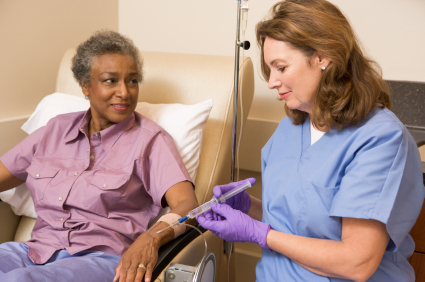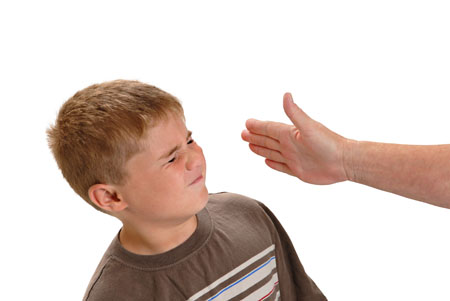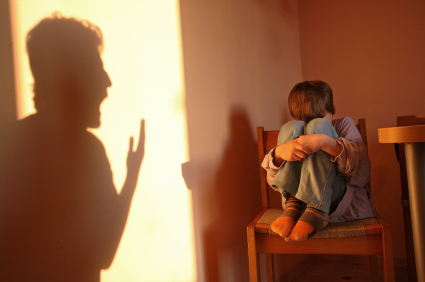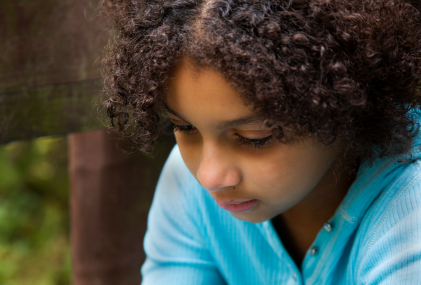Childhood Physical Abuse Predicts Response to IV Ketamine

At a recent scientific meeting, researcher Alan Swann reported the results of a study of intravenous ketamine in people with treatment-resistant depression. The 385 participants, who received four infusions of IV ketamine at a dosage of 0.5 mg/kg, could be grouped into three based on their type of response to the treatment.
One group had moderate depression at baseline and showed little change. A second group with severe baseline depression also showed minimal improvement. A third group who also had severe baseline depression had a rapid and robust antidepressant response to the treatment. This group had high scores relating to physical abuse on the Childhood Trauma Questionnaire (CTQ), but did not differ on other clinical variables. Swann and colleagues concluded, “Our outcomes show that IV ketamine should be considered as a primary treatment option for adults presenting with severe, treatment resistant depression and a self-reported history of childhood physical abuse. IV ketamine may not be as effective for moderately depressed individuals irrespective of childhood maltreatment.”
American Academy of Pediatrics Recommends Parents Avoid Spanking and Verbal Abuse
The American Academy of Pediatrics (AAP) has issued a policy statement calling for an end to corporal punishment, including spanking. These forms of punishment are tied to negative outcomes in every developmental area.
Children spanked regularly at age 3 had increased aggression risk by age 5. They also had more negative behaviors and lower vocabulary scores at age 9. Abusive behavior raises stress hormones and is associated with mental health struggles.
Verbal abuse should also be avoided. Verbal abuse includes punishment that shames, humiliates, threatens, frightens, or ridicules a child. Use of time outs, removal of privileges, and other forms of quiet discipline are recommended alternatives.
Editor’s Note: In our research network, the Bipolar Collaborative Network, we found that verbal abuse by itself (without the physical or sexual abuse that often accompany it) is associated with an earlier age of onset of bipolar disorder and a more difficult course of illness.
Family focused therapy (FFT) and other forms of family therapy are highly recommended for children of a parent with bipolar illness. These children are at high risk for a variety of psychiatric diagnoses, and those already experiencing depression, cyclothymia (mood swings between high and low) or a diagnosis of bipolar disorder not otherwise specified (BP-NOS) are much improved with FFT compared to treatment as usual. FFT teaches family members to recognize symptoms of illness for what they are rather than interpreting them as deliberate hostility, increases family communication and problem solving, and leads to good long-term outcomes.
Inflammatory Marker IL-6 is Elevated in People with Depression and Those with a History of Childhood Trauma
In a 2018 article in the journal Psychiatry Research, researcher Ana Munjiza and colleagues reported that the inflammatory marker IL-6 was higher in 64 depressed people than in 53 non-depressed people, and that levels of IL-6 among people in the depressed group were significantly correlated with scores on a questionnaire in which participants reported traumas experienced in childhood. They reported more physical abuse, physical neglect, and emotional abuse.
Munjiza and colleagues indicate that trauma in childhood is a risk factor for depression in adulthood, as other researchers have suggested, and that inflammation could mediate the relationship between childhood adversity and depression.
Editor’s Note: IL-6 has been associated with antidepressant treatment resistance. IL-6 is secreted from white cells in the blood and from monocytes from the bone marrow in response to stress. It enters the brain and starts an inflammatory cascade that induces depressive behaviors. Animal studies have shown that if IL-6 secretion is blocked, depressive-like behaviors do not occur.
Another indicator of inflammation is CRP, and elevations in CRP have been associated with poor response to selective serotonin reuptake inhibitor (SSRI) antidepressants, and better response to the noradrenergic tricyclic antidepressant nortriptyline and the dopamine active antidepressant bupropion.
Treatments for depressed people with histories of childhood trauma may include psychotherapy, somatic therapies such as repeated transcranial magnetic stimulation (rTMS) and transcranial direct current stimulation (tDCS), and medication. More research is needed to determine the optimal treatment regimens for this subgroup of depression sufferers, including whether anti-inflammatory drugs could play a helpful role in preventing or treating depression. People with elevated inflammatory markers (such as IL-6, CRP, IL-1, or TNF-alpha) are likely to be better candidates for adjunctive anti-inflammatory treatments than those with normal or low baseline levels of inflammation.
Mothers Who Were Abused in Childhood Secrete Less Oxytocin While Breastfeeding
A recent study suggests that women who experienced moderate or severe abuse in childhood secrete less oxytocin while breastfeeding their own children. Oxytocin is a hormone that promotes emotional bonding. The study included 53 women. They breastfed their newborn children while blood samples were collected from the women via IV. Those women with a history of moderate or severe abuse (emotional, physical, or sexual) or neglect (emotional or physical) had lower measures of oxytocin in their blood during breastfeeding than women with no history or abuse in childhood or a history of mild abuse.
A history of abuse or neglect was more common among women with current depression compared to women with a history of depression or anxiety. Women who had never experienced depression or anxiety were least likely to have a history of abuse or neglect.
The study by Alison Steube and colleagues, presented at the 2016 meeting of the Society of Biological Psychiatry, suggests that traumatic events that occur during childhood may have long-lasting effects. These experiences may modulate the secretion of oxytocin in adulthood. Low oxytocin has been linked to depression.
Adversity May Increase Risk of Mood Disorders
In adults with bipolar disorder, adversity in childhood has been associated with an earlier onset of bipolar disorder compared to those who did not experience some form of adversity such as verbal abuse, physical abuse, sexual abuse, loss of a parent, abandonment, or neglect. At the 2013 meeting of the Society of Biological Psychiatry, Nancy Low et al. reported that the number of these stressful life events a child experienced was associated with the number of their anxiety symptoms, psychiatric disorders, and lifetime substance abuse. Having experienced 3 or more adversities was associated with a 3.5-fold increased risk for developing a mood disorder and a 3-fold increase in anxiety disorders and alcohol or drug abuse.
While the study has not yet been published in a peer-reviewed journal, the abstract (#194) may be found in the meeting supplement, Volume 73, Number 9S of the journal Biological Psychiatry.
Editor’s Note: Low’s study is the first to report that childhood adversity is a risk factor for the onset of bipolar disorder in the general population.
Given the increasing evidence for the persistence of epigenetic marks on DNA and histones (which can’t change the sequence of genes but can change their structure) in those who have experienced such stressors in childhood, this could provide a mechanism for the long-term vulnerability of these children to the development of mood disorders and a variety of physical illnesses.
U.S. Patients with Bipolar Disorder Have More Stressors in Childhood and Prior to Illness Onset
In research published since 2008, our Editor-in-Chief Robert M. Post and colleagues in the Bipolar Collaborative Network have compared patients with bipolar disorder in the United States to those in Germany and the Netherlands. Compared to the European sample, patients in the US have more genetic vulnerability to bipolar disorder (by having a parent with bipolar disorder), earlier onsets of their illness, more complicated courses of illness, greater treatment resistance, and more medical comorbidities. Patients in the US also have more psychosocial stress.
The researchers are now turning their attention to these psychosocial vulnerabilities, and in a new paper that will be published in Psychiatry Research (late in 2013 or early in 2014), the authors show that patients in the US had more stressors both in childhood and just prior to the onset of their illness. Childhood stressors analyzed in the study were verbal abuse, physical abuse, and sexual abuse. Stressors in adulthood included indicators of a lack of social support, troubles with finances or employment, lack of access to health care, and medical comorbidities.
The stressors patients experienced just prior to their most recent episode of bipolar illness were related to: stressors in childhood, an earlier age of illness onset, anxiety and substance abuse comorbidity, lower income, both parents having an affective illness such as depression, and feeling more stigma.
The new research suggests that for patients with bipolar disorder in the US, adverse life events in childhood and later in life are more prevalent than they are for patients in the Netherlands or Germany. Earlier and more effective approaches to these stressors, such as the Family-Focused Therapy developed by David Miklowitz and Kiki Chang, could potentially slow the onset or progression of bipolar illness in this country.





